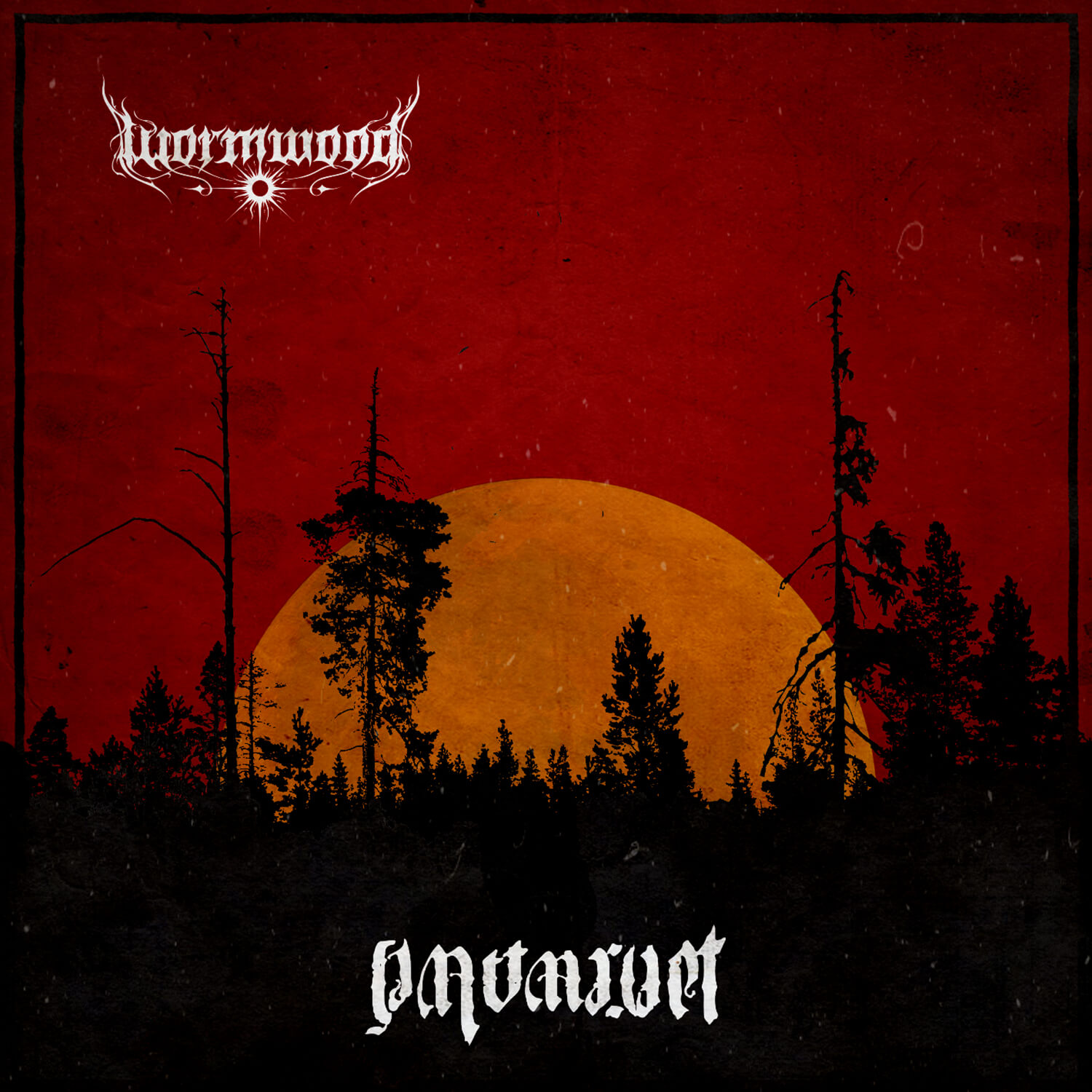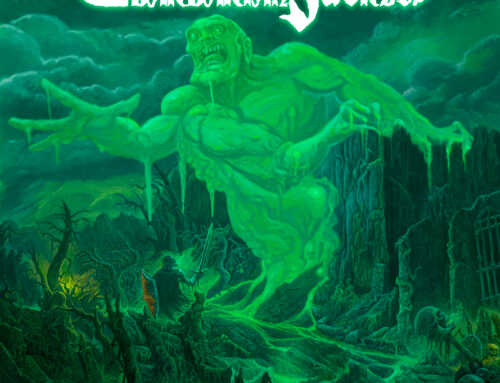The essence of the most successful generic exemplars of the black metal form lies in the ability of the perpetrator to evoke the resin of a moment, the very marrow of an event or feeling and its place in the past, present and future histories of the cosmos. Without this essence the very mechanics of sound make sure such music becomes merely a self-serving cacophony; Swedish artistes Wormwood possess this ability and, having demonstrated their rank as adepts on their first album, released two years ago, they take up their arms again here with a new album, Nattarvet, which builds on the foundations so solidly lain before.
The idea of Weltschmertz portrayed through music is not new; indeed many artists, seeking merely to portray the idea without giving full intellectual vent to it’s base concepts have fallen by the wayside, exposed as poseurs trading merely in Sigils of agony when no substance can be found to substantiate their posturing. No such allegation could be levelled at Wormwood. Here the very root of suffering, it’s achingly ordinary, brutally blasé simplicity, is laid raw in the chord progressions of compositions such as Arctic Light or Tvehunger. The listener is bludgeoned by raw emotion, yet even as the musicians effect to add human feeling via the leavening properties of acoustic instruments, the vast plain of bleak suffering offers little respite to ears seeking polka or the exhortations to ribaldry so often associated with ‘folk’ settings.
Tvehunger in particular is titanic in both scale of ambition and perpetration, and stands as a monolith in sonic design and form to suffering. Yet even here hope is offered by the uplifting lead guitar lines and chanted, seemingly bestial – or perhaps otherworldly – vocal intercessions. Indeed if the plan of the album, as spoken by the artist itself, is to evoke the pain of everyday existence as experienced by the native folk of the Swedish taiga, then rarely can a more successfully-executed blueprint have been made flesh. For as sure as these words typed appear on the computer screen, the listener will find themselves transported in time and space to that very location. And, within the confines of a centrally-heated listening space, the very marrow will be chilled simply by a succession of moods created by the most basic collection of chords and notes. Here can be found the apogee of the urge to evoke, to display life through a prism of not only sound but feeling.
This surely is the triumph of music at it’s most elemental, it’s most vital, it’s most incisive. Wormwood have created a timeless otherworld for the listener on Nattarvet; and it is certainly one from which I would be happy never to leave.
Nattarvet is out now.








Leave A Comment